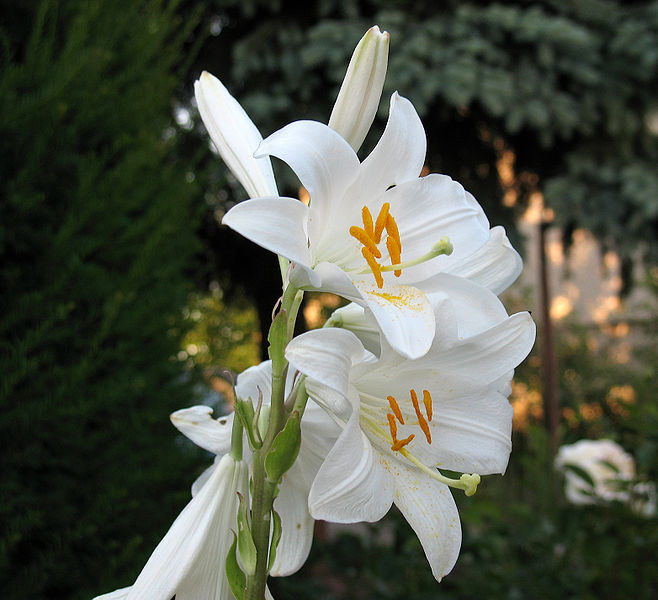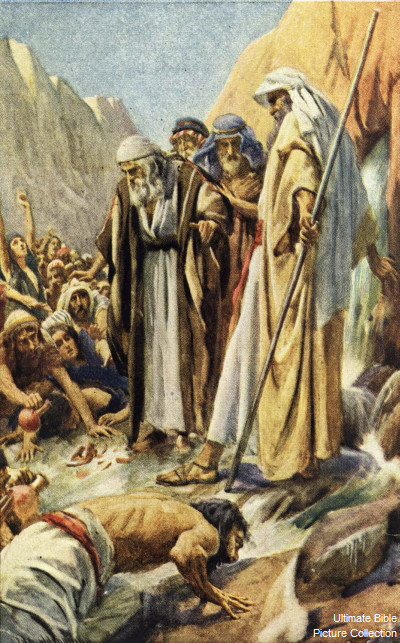The tendency to not want to get into personal charity, as a friend of mine told me today, has nothing to do with money, but everything to do with getting involved. How interesting that people have been made afraid of giving time and energy to a person in need.
Time and energy are gifts most of us have, at least to a certain age. As a person who is past mid-sixties, I have less energy but do what I can daily. We have many opportunities to reach out daily.
Today, I shoveled walks again for some neighbors who are older and busier than I am. I was engaged in praying for the dead, intensely, and listening as well as giving spiritual direction.
I cleaned someone else's house and had to admonish a neighbor who put garbage in that person's yard.
Busy days but with a purpose of serving immediately and willingly. This is our call.
The difference has to do with one thing-trusting in Divine Providence, and for those who read the series on Divine Providence, this will resonate with them.
Trust in Divine Providence unravels the bonds which hold back living in the Beatitudes, which is our ultimate call.
Here is Garrigou-Largange on this point, with my comments in blue.
Christian perfection, according to the testimony of the Gospels and Epistles, consists chiefly in charity which unites us to God.(1) This virtue corresponds to the supreme precept of the love of God. We read also: "He that abideth in charity abideth in God, and God in him." (2) "But above all these things have charity, which is the bond of perfection." (3)
Some theologians have questioned whether for perfection, properly so called, not that of beginners or of proficients, but that which characterizes the unitive way, a great charity is necessary, or whether this perfection can be obtained without a lofty degree of this virtue. Some authors doubt it.(4) They even declare that a high degree of charity is not necessary to perfection, properly so called, because, according to the testimony of St. Thomas, "the very least grace is sufficient to resist any degree of concupiscence." (5)
The virtue of charity blossoms in the Unitive state, after the Dark Night and after Illumination. But, this charity takes a long time to acquire, after one has lost egotism and been cleared of the predominant faults.
The majority of theologians answer, on the contrary, that perfection, properly so called, is obtained only after long exercise of the acquired and infused virtues, an exercise by which their intensity increases.(6) Before reaching the age of perfection, the perfect man must have been a beginner, then a proficient. In the perfect man, not only can charity conquer many temptations, but it has in fact triumphed over many, and has thereby notably increased. Therefore Christian perfection, properly so called, that of the unitive way, cannot be conceived without a lofty charity.(7)
Charity goes hand-in-hand with trusting in Divine Providence. The more one becomes like a little child, the more one is free to give, like a little child.
If we were to read the contrary in the works of St. John of the Cross, for example, we would think we were dreaming and that there was a typographical error. It seems altogether certain that, as for adult age greater physical strength is needed than for childhood (although accidentally certain particularly vigorous adolescents may be stronger than certain adults), likewise for the state of the perfect a loftier charity is also needed than for that of beginners (although accidentally certain saints have a greater charity at the beginning than certain perfect souls already advanced in age).
The common teaching of theologians on this point seems clearly founded on the very preaching of the Savior, especially that of the beatitudes found in the fifth chapter of St. Matthew's Gospel. This page of the Gospel admirably expresses all the elevation of Christian perfection to which Christ calls all of us. The Sermon on the Mount is the abridgment of Christian doctrine, the solemn promulgation of the New Law, given to perfect the Mosaic Law and to correct erroneous interpretations of it; and the eight beatitudes given at its beginning, are the abridgment of this sermon. They thus wonderfully condense all that constitutes the ideal of the Christian life and show all its loftiness.
Living in the life of the Beatitudes would be the mark of the saint, that person who has allowed God to take over one's soul and let the Trinity shine forth. Happiness comes with freedom. And, the free person lives only for the glory of God and for others, not for self. Time and energy given to God becomes multiplied in one's life through charity.
Christ's first preaching promised happiness and showed the means to obtain it. Why does He speak first of all of happiness? Because all men naturally wish to be happy. They pursue this end unceasingly, whatever they may wish; but they often seek happiness where it is not, where they will find only wretchedness. Let us listen to our Lord, who tells us where true and lasting happiness is, where the end of our life is, and who gives us the means to obtain it.
The end is indicated in each of the eight beatitudes. Under different names, it is eternal happiness, whose prelude the just may enjoy even here on earth; it is the kingdom of heaven, the promised land, perfect consolation, the full satisfaction of all our holy and legitimate desires, supreme mercy, the sight of God our Father. The means are quite the contrary of those suggested by the maxims of worldly wisdom, which proposes an entirely different end.
Indeed, the thinking of Christ is opposite of that of the world. Meekness, poverty of spirit, mourning, become marks of the adult Christian. Without the long process of purification, real charity is never achieved.
The beatitudes of the deliverance from sin correspond to the purgative way, which is proper to beginners and which is prolonged in the way the proficients and the perfect ought to follow. Whereas the world declares that happiness is in the abundance of exterior goods, of riches, and in honors, Christ states without any other preamble, with the calm assurance of absolute truth: "Blessed are the poor in spirit: for theirs is the kingdom of heaven."
Although the Beatitudes blossom after the purification, these virtues can lead us to deliverance from sin. What does this mean? It means that the practice of the virtues, without the perfection of the soul, lead one through that purification.
Each beatitude has many degrees. Happy they who are poor without murmuring, without impatience, without jealousy, even if bread should be lacking, and who work while placing their trust in God. Blessed are they who, though more fortunate, have not the spirit of riches, pomp, and pride, but are detached from the goods of earth. More fortunate still are they who will leave all to follow Christ, who will make themselves voluntarily poor, and who will truly live according to the spirit of this vocation. They will receive the hundredfold on earth and eternal life. These poor are they who, under the inspiration of the gift of fear, follow the road which, though narrow at first, becomes the royal road to heaven, on which the soul dilates more and more, whereas the broad road of the world leads to hell and perdition. Elsewhere Christ declares: "Woe to you that are filled: for you shall hunger." (10) On the other hand, blessed is that poverty which, as the life of St. Francis of Assisi shows, opens the kingdom of God that is infinitely superior to all wealth, to the miserable riches in which the world seeks happiness.
Poverty opens the kingdom of God. The soul opens up to God's perfect will. Voluntary poverty is the best way, but the acceptance of poverty is good.
Blessed are the poor, or humble of heart, who do not cling to the goods of the body, or to those of the spirit, or to reputation, or to honor, and who seek only the kingdom of God.
The desire of riches divides men, engenders quarrels, lawsuits, violence, and war among nations; but Christ says: "Blessed are the meek, for they shall possess the land." Blessed are they who do not become irritated against their brethren, who do not seek to take vengeance on their enemies, to dominate others. "If one strike thee on thy right cheek, turn to him also the other." (11) Blessed are the meek who do not judge rashly, who do not see in their neighbor a rival to be supplanted but a brother to be helped, a child of the same heavenly Father. The gift of piety inspires this meekness in us with a filial affection toward God our common Father. The meek are not stubbornly attached to their own judgment; they express themselves quite simply in a straightforward manner, and do not feel the need to call heaven to witness in trivial matters.(12)
God has a plan which is clear. It is simple,very simple. Many thanks to Ken, Marcia, and Jenna, who make it possible for me to continue this blog.











.jpg)













